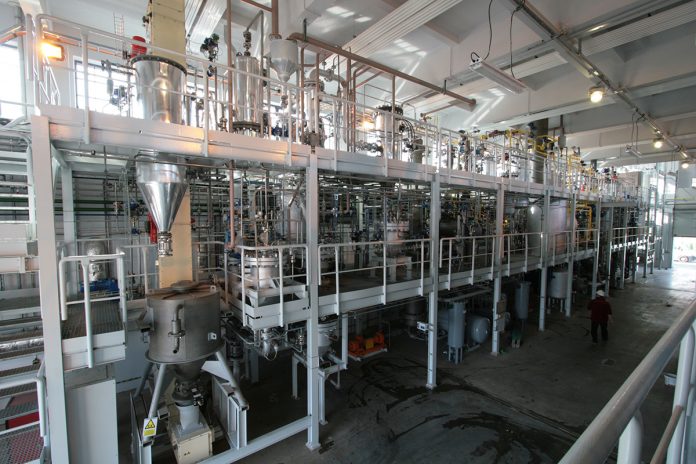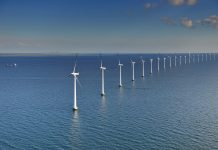The adaptation of coal for green future is detailed here by Aleksander Sobolewski and Anna Kwiecińska from the Institute for Chemical Processing of Coal in Poland
In modern Europe, access to energy, water and other civilisation goods is regarded as a basic need rather than a privilege. The European economy, energy system and industry, have grown mainly on coal, and as such, are mature and ready for their green transformation, which, however, should be done with the greatest attention to maintain a safe and stable energy supply.
In recent years, we observe the introduction and stepwise increase of the share of alternative and renewable energy sources and fuels in the energy cycle. On the other hand, many developing countries look at coal as the basic fuel for their growing economies.
There are also developed regions, which still focus their economies on coal and as such, they are willing to adapt their systems towards a more efficient and environmentally improved coal use. For over 60 years, the Institute for Chemical Processing of Coal has actively participated and experienced changes and challenges related to the coal sector. Hence, considering the current social and environmental requirements accompanied by worldwide trends in the market and in the economy, we are ready to state that global innovation will be based on clean coal technologies. We believe that the world simply needs coal. Our role, as researchers, is to take actions to minimise environmental effects resulting from coal use.
Moreover, together with authorities, in developed countries, it is also our responsibility to support developing regions in their growth, and to assure this growth integrates all, social, industrial and environmental requirements. To provide reliable and efficient solutions for coal, or more generally, for carbon-based systems, as both the technologies developers and suppliers, we need to have both, access to knowledge and the opportunity to gain the experience, and this is exactly what forms the main goal of the Institute.
Research priorities in the field of coal
To reach this goal, since 2012 Institute for Chemical Processing of Coal operates Clean Coal Technologies Center, unique in Europe research centre equipped with laboratories and installations for thermal processing of not only coal but also biomass and alternative fuels at minimum CO2 emission. In the Center, we are able to apply different emission-limitation solutions to different technologies and improve them toward desired process parameters and acceptable environmental effects.
We lead our research in regards to all stages related to the effective and reasonable use of coal and other carbon-based fuels. Our centre possesses the complete line of fuel processing, starting from facilities for fuels preparation, through their thermochemical processing by, for example, combustion or gasification, up to process and flue gases cooling and cleaning, including CO2 capture.
Moreover, we focus not only on industrial coal use but also on its utilisation in terms of residential heating boilers. These actions allow us to deliver the innovative knowledge and technologies that support the coal and carbon-based industries and as such, ensure the efficient use of fossil, renewable and alternative fuels. The effective participation of the Institute in this innovation chain is our greatest challenge and at the same time, it is an honour.
Not only the energy, not only the air
Coal is also an extremely important feedstock for steel production. Indeed, annually approximately 1,000 Mt of coal is consumed worldwide to produce coke, which is next used in blast furnaces for the recovery of iron from its ores. The long-term experience and cooperation of the Institute with coking plants make us aware of the challenges faced by the coal sector. One of them is the proper treatment and utilisation of coke oven wastewater formed during coke oven gas cooling. Coking plants have made a huge leap towards environmentally acceptable practice within which coke oven wastewater treatment was improved by the introduction of biological systems.
However, in wastewater, there are toxic substances, which are not only resistant to bio-decomposition, but also need to be removed prior to it, in order to assure effective and stable operation of the biological treatment stage.
Moreover, the development of novel methods and sharpening of requirements for improved environmental effect of industrial plants creates new challenges, especially in reference to water. We are increasingly aware that water is a valuable resource, and its reasonable and sustainable use and management is our responsibility.
In industry, the main idea is to close water loops and to use water recovered from side streams available at a plant. At our Institute, we have the opportunity to coordinate the project entitled “The innovative system for coke oven wastewater treatment and water recovery with the use of clean technologies” (acronym: INNOWATREAT), co-financed by The Research Fund for Coal and Steel.
Innovative approach for conventional design
The INNOWATREAT project aims at elaboration of a set of solutions suitable to be applied at existing coke oven wastewater treatment sites. There are two main goals of the project. The first is the improvement of toxicants elimination from coke oven wastewater, accompanied with neutrality concerning stream salinity. This is to be obtained by innovative flotation and electrocoagulation processes.
The second is the recovery of the technological grade water from purified coke oven wastewater, which can be done by introducing a proper configuration of membrane separation techniques. To achieve these goals, within the project we have the pleasure of cooperating with national and foreign research and industrial units (Wroclaw University of Technology, Akvola Technologies, Cracow University of Technology and Czech Technical University in Prague).
Moreover, we would like to acknowledge the support from The Research Fund for Coal and Steel and from Polish Ministry of Science and Higher Education, without which the project would not have been performed. The results obtained up to the present demonstrate that we are on a good road, but we still need to focus on scale upon efficiency and an acceptable economical balance. Nevertheless, we are proud that we may create the basis for the next-generation of industrial wastewater treatment methods – focused on closing the water loops and of course, enabling sustainable water management.
Please note: this is a commercial profile
Aleksander Sobolewski
Director of IChPW
Anna Kwiecińska
Adjunct in IChPW
Institute for Chemical Processing of Coal
Tel: +48 32 271 00 41
+48 32 621 65 38











